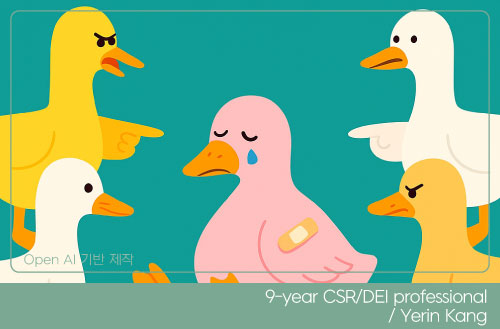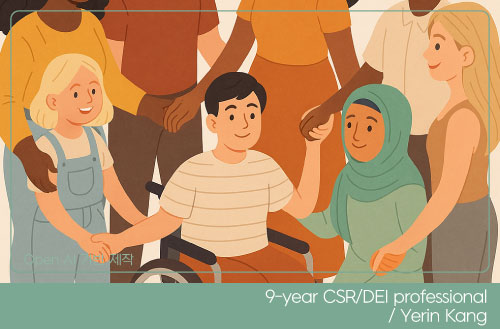
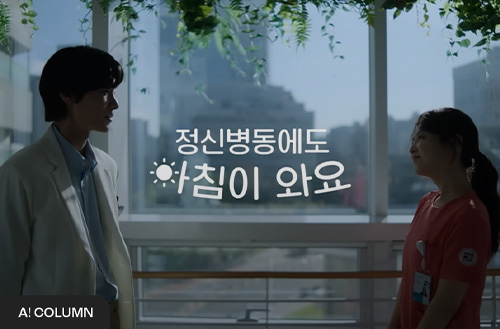
-
-
- 메일 공유
-
https://stories.amorepacific.com/en/amorepacific-has-morning-arrived-in-your-heart
Has Morning Arrived in Your Heart?
Journey to Discovering ‘Selfness’ #4

Columnist
Ye-rin Kang CSR Team

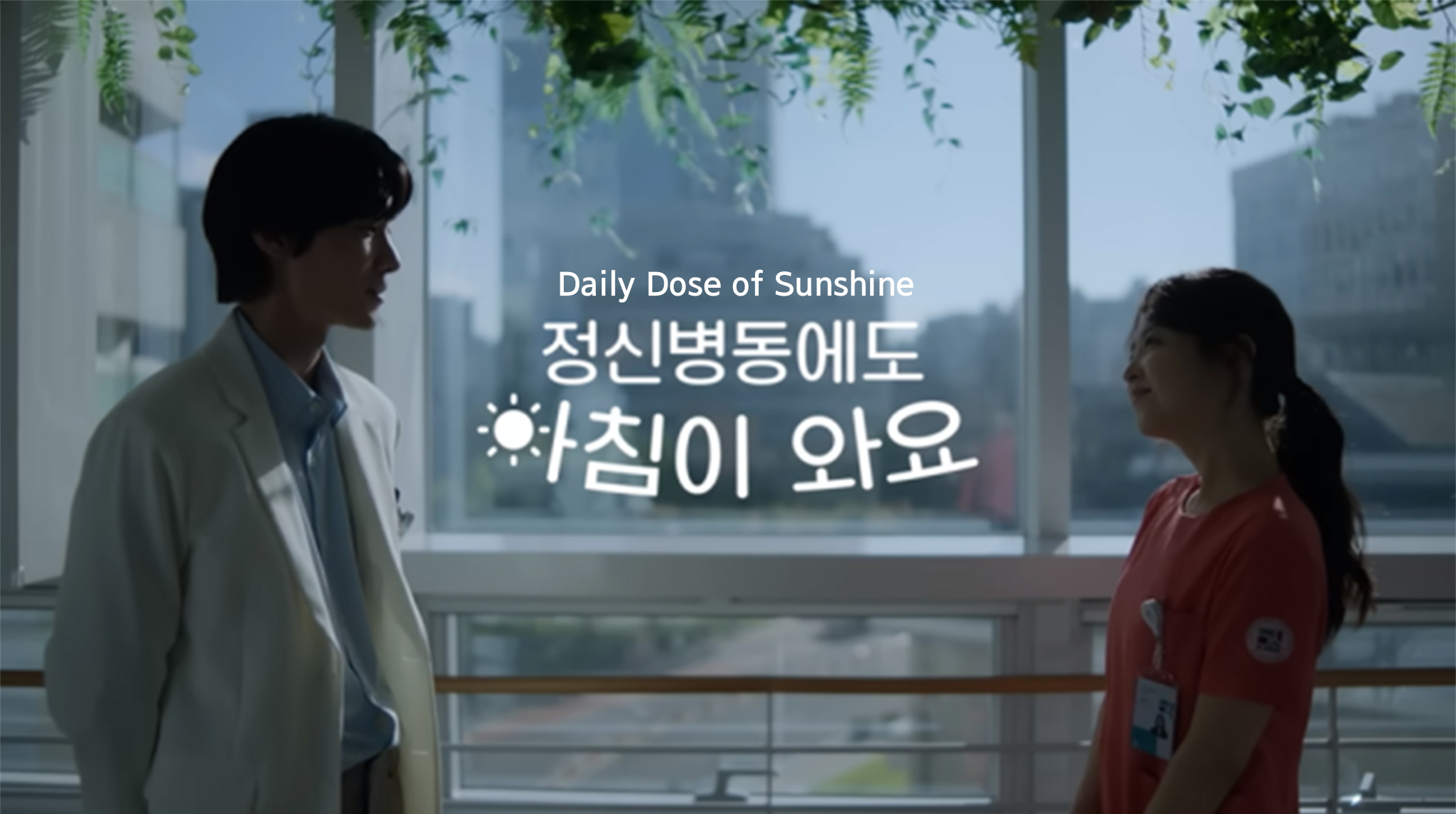
Source: Naver
#INTRO
Not too long ago, at the 'Blue Dragon Series Awards,' actress Bo-young Park's acceptance speech became the talk of the town.
She said, "For those who are going through a very dark and long night, I hope you don't give up and keep pushing through until you see the morning light."
This message brought hope to many. Bo-young Park received the award for the drama Daily Dose of Sunshine. Watching this drama felt like being struck by a hammer—it was that powerful. It made me realize that the events depicted could quickly happen to me or those close to me. Perhaps that’s why the show’s description reads, "A story for everyone who teeters on the edge between normal and abnormal."
In this column, I want to discuss something that I am perhaps most indifferent to but which could collapse without warning: my ‘mental health.’
1 Is It Really Okay to Ignore Mental Illness Just Because We Can't See It?
Mental illnesses are often invisible, making them hard to notice. Let’s imagine two friends who are both going through painful experiences at the same time. One friend has been in a car accident and has broken a bone, while the other has just gone through a breakup. Who would you go to first? Personally, I would probably rush to a friend who was in a car accident. After all, that friend has been physically injured.
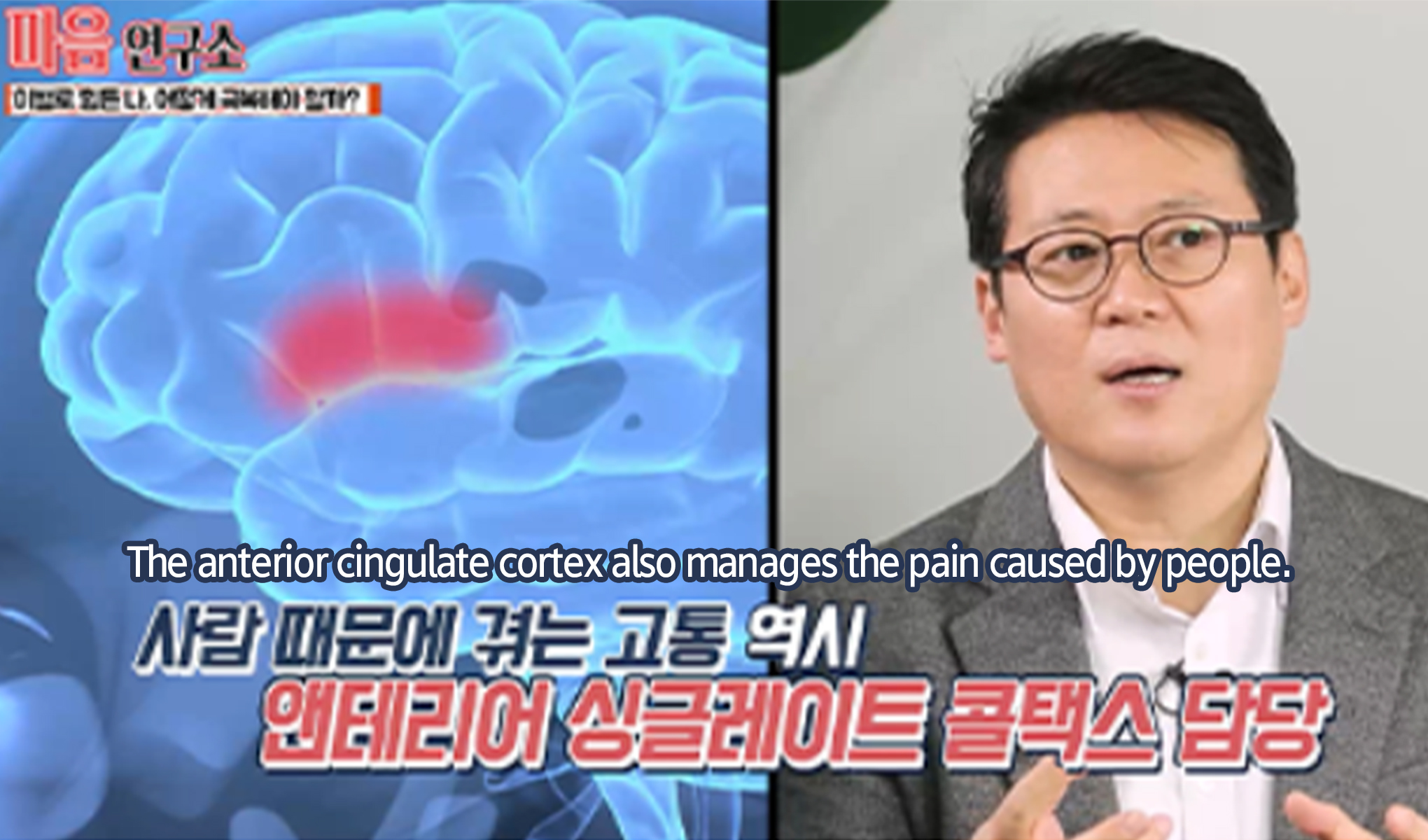
Source: KyoboStory 'Mind Lab'
However, after listening to a lecture by Professor Kyung-il Kim, a psychologist, I had to rethink this. In his lecture, he explained that the brain of a person who has been in a car accident and the brain of someone suffering emotional pain because of another person are in similar states. The 'anterior cingulate cortex (ACC),' located near the temples on both sides of the brain, is the hub of pain perception. When bones are broken, or flesh is torn, painkillers are taken to soothe the ACC. Surprisingly, the ACC is also responsible for various types of mental pain caused by others. There are studies indicating that taking painkillers prescribed for physical injuries can also alleviate the mental anguish caused by breakups, conflicts, and betrayals. According to research by Professor Nathan DeWall from the University of Kentucky, people who experienced social pain, like a breakup, and took painkillers regularly felt significantly less emotional pain after three weeks.
Psychologists conducting these studies realized a critical point. If you or someone close to you is suffering because of another person, it's crucial to treat that person as though they are physically injured. This is because their brain perceives the pain similarly. Yet, when someone suffers because of another person, the empathy and care they receive are far less than what is offered to someone with a physical injury. This has been true in my experience as well. Comparing the support received for emotional pain to that for injuries from a car accident, it turns out that the former is only about one-twentieth of the latter. I wonder if this isn't similar to caring for our pain.
On days when you've suffered significant emotional pain caused by someone else, you might appear fine on the outside, but it's akin to bleeding internally. So, if your mind feels unbearably heavy, consider yourself injured and take care of yourself more than ever.
Beyond this relational pain, I'd like to introduce a few other common mental health issues that people often experience.
2 What's the Battery Level of Your Mind? On 'Burnout'
Have you experienced burnout in the past three years? We call this Burnout Syndrome in English, and in Chinese characters, it’s written as 燒盡. Burnout is a term that refers to the intense physical and mental exhaustion one feels when overwhelmed by their duties, leading to a loss of passion and a sense of achievement. Simply put, it’s a state of mental depletion. Practitioners at mental health centers first adopted this term to describe extreme fatigue. By the 2010s, it had evolved into a buzzword to describe the diminished capacity and enthusiasm many workers feel in their jobs. However, burnout doesn’t just affect those in the workforce; it can also strike during parenting, job hunting, or even while engaging in self-improvement. A survey of approximately 300 male and female office workers revealed that a staggering 69% reported experiencing burnout syndrome. So, what are the symptoms of burnout?
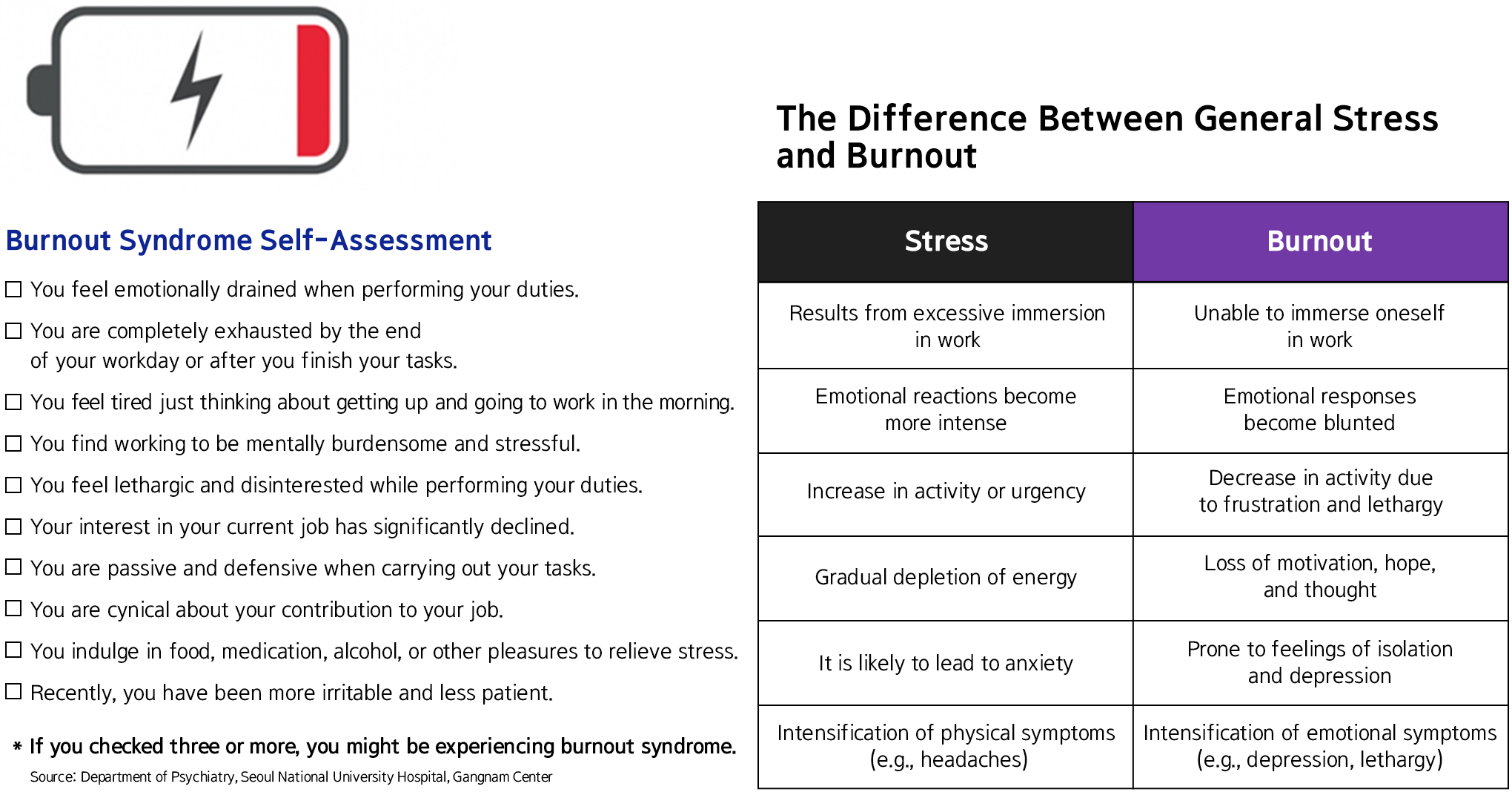
Source: Department of Psychiatry, Seoul National University Hospital, Gangnam Center
If you identified with three or more statements on the self-assessment above, you might be experiencing burnout syndrome. I, too, have gone through burnout during my career. At the time, I remember thinking, "I just want to do nothing," or "I want to escape to some far-off island by myself." This was right around the end of a hectic project. There wasn't even a moment to consider my mental state in the whirlwind of activity. But when I finally had a chance to pause, a flood of negative emotions hit me all at once. When it came time to rest, I didn’t know what to do. I'd lie down, drained of energy, only to feel even more lethargic. How could I muster the strength to reignite my passion? How does one overcome burnout? I found myself pondering these questions a lot. Those who fall into burnout often describe an overwhelming sense of powerlessness because their bodies essentially say, "No more," and shut down.
Anna Katharina Schaffner, an expert on burnout, offers several strategies for overcoming this condition. The first step is to 'cut off' negative thoughts and emotions. There is a correlation between perfectionism and burnout. When we set unrealistically high expectations for ourselves and obsess over achieving them, we increase our risk of experiencing burnout. Many people harbor an 'inner critic,' a negative voice that drains their energy. At such times, it is vital to listen to this inner voice from the perspective of an objective observer. For example, instead of saying, "I am furious about X, Y, Z," you could say, "I recognize that I am feeling anger." While maintaining an objective viewpoint is crucial, knowing when to ‘sever’ these negative thoughts is equally important.

Source: AP Chat GPT Images
Like a conveyor belt carrying countless pieces of sushi past us, our brains constantly present us with a stream of thoughts and emotions. Some of these are appealing, but others are less appealing. Just as we don't pick up every piece of sushi, we must learn to let go of thoughts and feelings that lack substance.
The second step is understanding your preferences and tendencies. It’s about identifying what mainly causes your stress, recognizing how much tension you’ve been carrying, and knowing when you need to take time for recovery. In my case, I realized that not receiving ‘recognition’ for my work led to stress and burnout. So, I found it essential to fulfill my need for a sense of accomplishment, even if it was through small tasks. I managed to do this by engaging in volunteer activities, which helped meet this need and comforted me, aiding my recovery from burnout.
The third step is filling the empty ‘rooms' of your mind. The more time and energy you pour into work, the more other areas of your life become void. These empty 'rooms' only appear when we pause and look around. Therefore, it’s essential to gradually accumulate other sources of meaning, joy, and pleasure in our lives. Among those who have experienced burnout, 47.9% reported overcoming it through 'vacations and rest,' followed closely by 'hobbies' at 41.5%.
"Taking proper rest every day is essential.
You must allow yourself guilt-free breaks, allowing your mind and body to recover away from work."
— Burnout expert Anna Katharina Schaffner
When work gets hectic, we often debate whether or not to take a vacation. I desperately wanted to rest during my burnout, but complicated thoughts made me delay my vacation. This only intensified my irritability and lethargy, creating a vicious cycle. Realizing this, I forced myself to take breaks whenever possible unless it was urgent. I found that even a day away from work, fully relaxing or engaging in a hobby, could do wonders for recovery.
The common thread among these three methods is 'consciously taking care of oneself.' Managing burnout in a way that is true to oneself involves reflecting on why you've reached this state, cutting off negative thoughts, and deliberately taking time to rest. If you ever find yourself experiencing burnout or are going through it right now, I hope you'll consider trying one of these three strategies to take care of yourself.
3 Like Breathing Through a Straw Underwater: Understanding 'Panic Disorder'
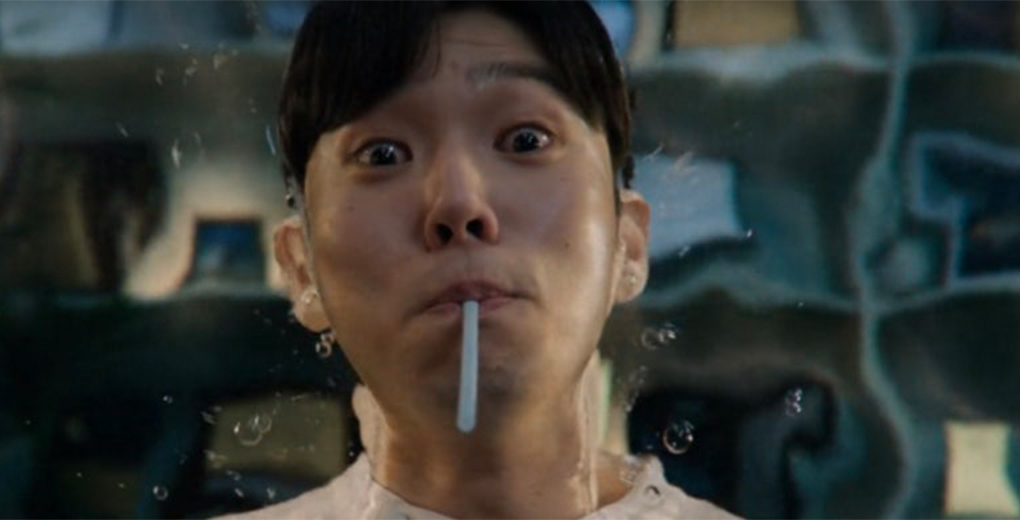
Source: Daily Dose of Sunshine
Panic disorder is a condition characterized by sudden and recurrent attacks of intense anxiety and fear without any apparent reason or cause. During a panic attack, one might experience symptoms such as a rapid heartbeat and shortness of breath, accompanied by a terrifying sensation of impending doom. Once a panic attack has occurred, the person may develop 'anticipatory anxiety,' a persistent fear of having another attack, which can lead to chronic tension. This can also result in 'agoraphobia,' the fear of being in places where escape might be harrowing or where help might not be accessible. The drama Daily Dose of Sunshine, which I mentioned in the introduction, also explores this condition. Panic attacks are often described as feeling like "trying to breathe through a straw underwater."
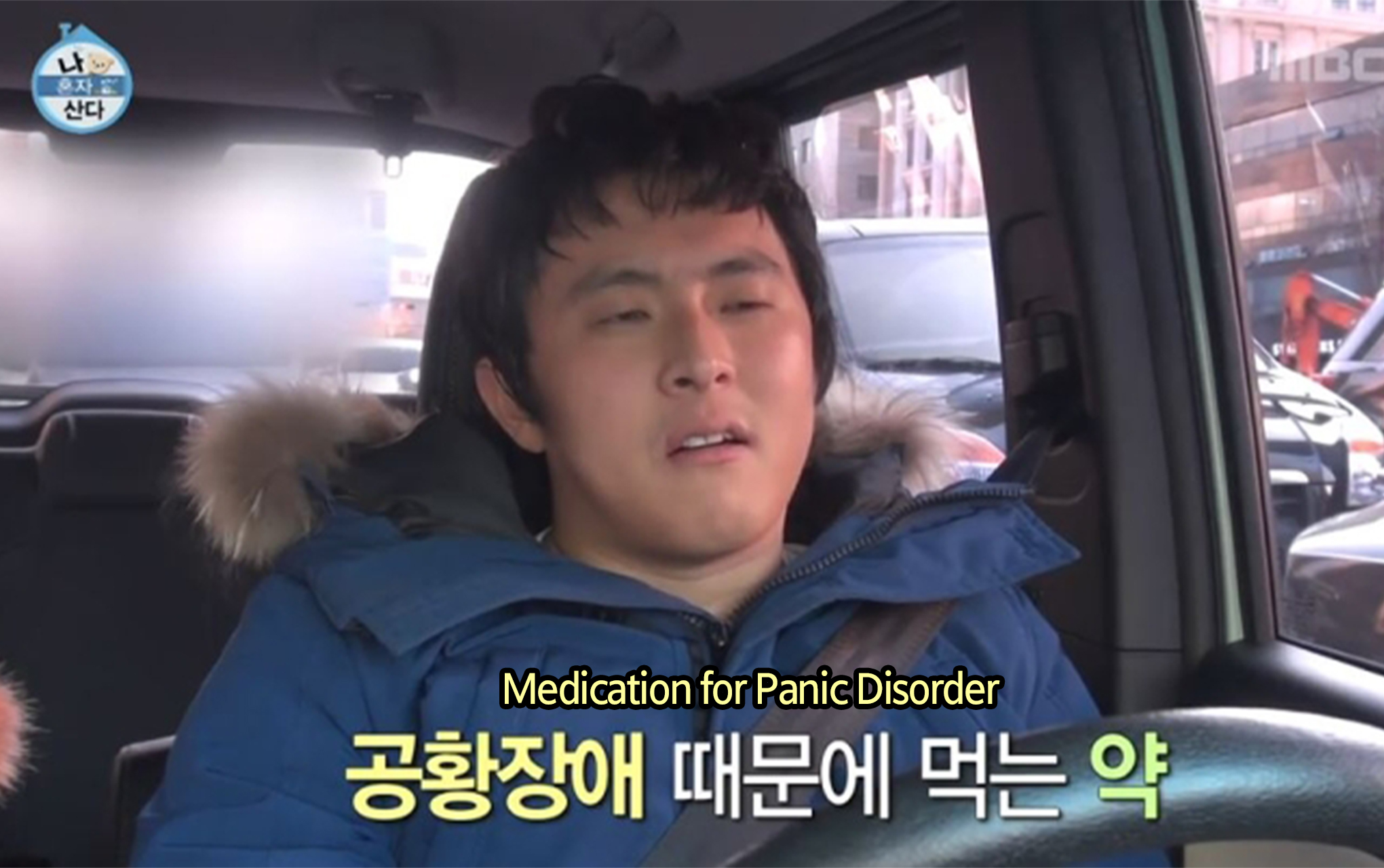
Source: I Live Alone
Panic disorder has become widely known to the public, partly due to celebrities who have opened up about their experiences. For example, Kian84, a cast member of I Live Alone, revealed that he suffers from panic disorder. He shared, "I was driving on the highway at night, and something felt off. I barely managed to pull over onto the shoulder. It was indeed a panic attack; I felt like I was losing control." Many other celebrities, including Kyung-kyu Lee, Gu-ra Kim, Hyung-don Jung, and Tae-hyun Cha, have also taken breaks from their careers due to panic disorder.
According to statistics from 2022, 240,000 people received treatment for panic disorder in just one year, and the number of patients has increased by 44% over the past five years. Data from the National Health Insurance Service indicate that the most common age groups seeking treatment for panic disorder are those in their 30s and 40s, with the sharpest rise observed among people in their teens and twenties. The surge in young patients is attributed to prolonged stress from the pandemic, including difficulties in securing employment and social isolation.
The cause of panic disorder lies in an abnormal arousal response in the brain. The amygdala, which regulates stress, malfunctions for unknown reasons, causing the body to remain in a heightened state of alert even when there is no immediate threat. Research analyzing the characteristics of panic disorder patients found that 74% had experienced at least one stressful event just before their first panic attack. The most common stressor was work-related overexertion (17.6%), followed by physical illness (9.7%), family issues (9.6%), financial problems (8.7%), interpersonal conflicts (8.6%), conflicts with a spouse or partner (8%), academic pressure (5.3%), and bereavement (3.1%). Additionally, alcohol consumption is another factor that can stimulate the autonomic nervous system, posing a risk. An increase in alcohol intake was observed in 22.6% of male patients just before their first panic attack. While it's not easy to change stressful environments, modifying unhealthy habits such as excessive alcohol and caffeine consumption may help prevent panic disorder. If symptoms of panic disorder are already present, early treatment in a psychiatric setting is recommended, as this condition does not naturally resolve on its own and, if left untreated, can lead to secondary issues such as depression and personality disorders.
As I delved deeper into panic disorder, I realized that this illness could be a signal from the brain, a cry for help triggered by prolonged arousal or shock. Life inevitably brings stress that might push anyone to their limits. Before my brain sends distress signals, I think it’s crucial to recognize the situation early and remember to 'breathe.'
4 No One Can Guarantee 'Mental Health'
Just as our bodies can catch a cold for no apparent reason or be struck by a severe illness like cancer, our minds, too, can suddenly become unwell for reasons beyond our understanding. However, while we rush to the hospital at the first sign of physical illness, we often hesitate to seek help when our minds are troubled. Perhaps it's because we think, "I'm just being weak; it will pass soon," or "What if others think I'm strange?" So, we grit our teeth and try to endure it.
In Daily Dose of Sunshine, there’s a line that goes like this:
"We are all standing on the edge. The intern, who stood between dreams and reality, found his answer.
Yoo-chan, who teetered between anxiety and calm, found a way not to hurt anymore.
As for me, caught between depression and not, someone came into my life before the depression could.
We all live between day and night. We are all border people, straddling the line between normal and abnormal."
—From Daily Dose of Sunshine
Instead of assuming that "my mind will always be fine," perhaps we should acknowledge that we are constantly on the edge. Just because it’s invisible doesn’t mean it’s insignificant. Just as we undergo regular health check-ups for our bodies, we need to examine and care for our minds regularly.
#OUTRO
In this fourth column of the journey to discovering ‘selfness,’ we discussed ‘mental health.’ Are you, by any chance, going through a long, dark night right now? If you ever find yourself in such a difficult period, please don’t neglect your mind—treat it with care. If you take good care of it, you will surely see the morning light. I hope you take some time to reflect on your mental state until the next column. Thank you.
-
Like
1 -
Recommend
0 -
Thumbs up
0 -
Supporting
0 -
Want follow-up article
0




